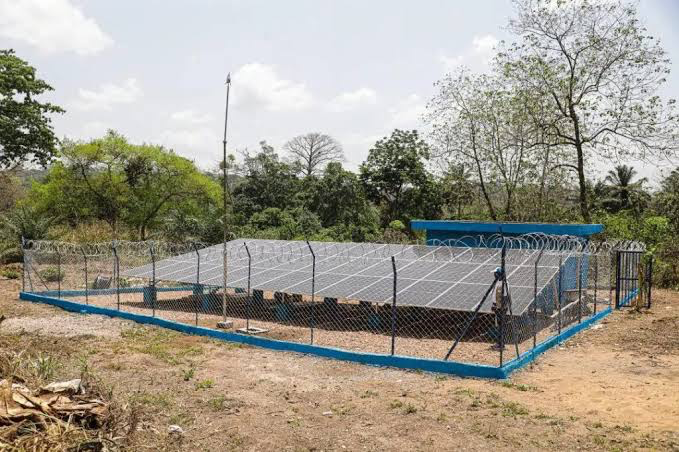In Guinea, a country grappling with significant energy challenges, two towns are making strides towards sustainable development with the recent inauguration of solar photovoltaic (PV) mini-grids equipped with advanced battery storage technology. This initiative represents a critical advancement for Bolodou and Tianguel Bori, towns that have faced persistent issues with energy reliability.
The project, spearheaded by Aptech Africa, a company specializing in solar energy solutions, involved the design, supply, installation, and commissioning of two mini-grid systems. The larger system, located in Bolodou in southwestern Guinea, features a 103.4 kWp solar array complemented by a 192 kWh battery bank. This setup not only harnesses solar energy but also stores it, ensuring a consistent power supply regardless of weather conditions. Additionally, the system is integrated with an existing hydroelectric plant, creating a hybrid solution that enhances the town’s energy resilience.
The smaller installation in Tianguel Bori, a town in the north-central region of Guinea, includes a 21.45 kWp solar array and a 33.6 kWh battery storage system. Similar to Bolodou, this system also incorporates a sophisticated remote monitoring setup, allowing for efficient management of energy production and consumption. The system powers a network that initially connects to a sample of 10 users, including local offices and schools, demonstrating the potential for broader community impact.
These solar projects are pivotal for Guinea, where only about 30% of the population has access to electricity, and the existing energy mix heavily relies on fossil biomass, oil, and hydropower. By integrating solar PV mini-grids, Guinea aims to diversify its energy portfolio while addressing the pressing need for reliable and sustainable power sources. The introduction of renewable energy solutions like these not only helps in stabilizing the local energy supply but also plays a crucial role in the socio-economic development of the communities. The availability of consistent and renewable power means that local businesses, educational institutions, and government offices can operate more efficiently and without the interruption of power outages.
Moreover, the environmental benefits of such projects are considerable. By reducing reliance on fossil fuels and biomass, which are associated with high carbon emissions and deforestation respectively, these solar installations help in mitigating the adverse impacts of climate change. This is particularly significant for Guinea, a country vulnerable to the effects of global warming, such as increased rainfall variability and intense weather events.
The success of the Bolodou and Tianguel Bori projects serves as a model for other regions in Guinea and similar environments across Africa, where access to energy is a barrier to economic and social development. It demonstrates how integrating renewable technologies, especially solar energy with battery storage, can provide a reliable, sustainable, and economically viable power solution.



